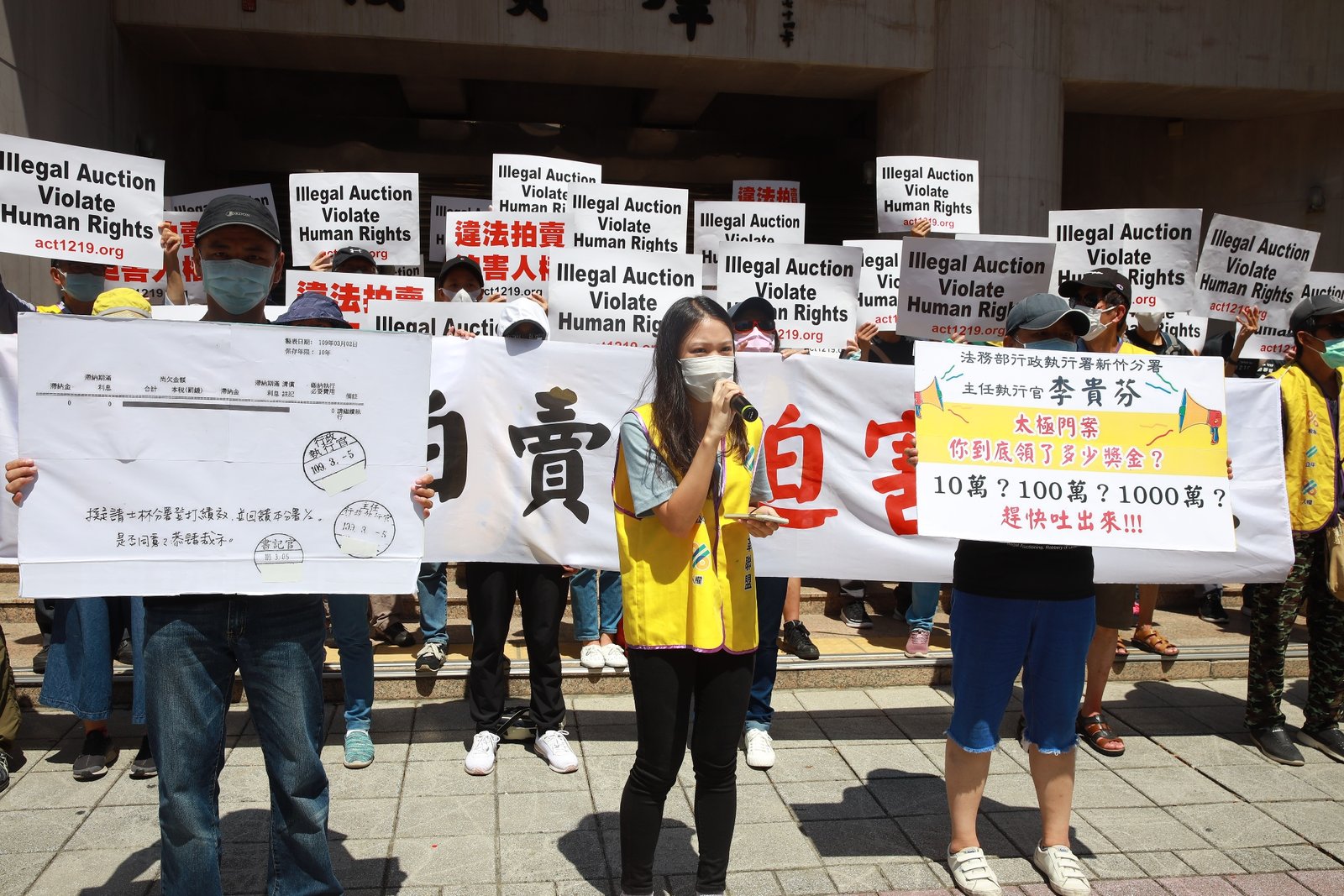Academics and human rights advocates have denounced for more than five years, including at the United Nations, the injustice perpetrated in Taiwan.
by Alessandro Amicarelli*
*A paper presented at the session “Freedom of Religion Issues in Taiwan and the Tai Ji Men Case” of the CESNUR 2025 international conference, Cape Town, South Africa, November 19, 2025.

Today, we gather to reflect on justice, freedom, and the indomitable spirit of those who do not surrender, even in the face of persistent state persecution. The Tai Ji Men case, with which we are all familiar, serves as a lesson for all who value dignity, the rule of law, and human rights.
As scholars, advocates, and activists, we have devoted over five years to exposing the facts and defending justice in the Tai Ji Men case, a story marked by persistent state persecution, judicial abuse, and violations against conscience.
We repeatedly reported the abuses, reminding ourselves that we are friends of Taiwan. This country has made remarkable efforts to become a democratic nation governed by the rule of law and respectful of human rights, following the dismantling of the previous Martial Law system.
The sad story of persecution of the Tai Ji Men community started in those difficult years when Taiwan was transitioning from its turbulent past into the new millennium.
In 1996, a prosecutor who was stuck in the past, rather than envisioning a brighter future for his own country, led sweeping crackdowns against several spiritual organisations, including a particularly violent one against Tai Ji Men, under the guise of enforcing tax and fraud laws. This campaign aggressively targeted Tai Ji Men, even accusing its leader of raising goblins, despite the organization’s widespread recognition for promoting peace and cultural exchange. The campaign exploited the movement’s scapegoating for political gain and personal career advancement.
The time proved that the initial accusations of religious fraud and tax evasion were totally fabricated, and evidence was intentionally manipulated.
Tai Ji Men’s leader, Dr Hong Tao-Tse, his wife, and some members faced harsh interrogations, unlawful arrests, and detention. Properties were raided, and private assets were frozen, causing years of problems for virtually all members of Tai Ji Men and the organisation itself. After a decade of extenuating proceedings, the courts cleared Tai Ji Men of all charges recognising that the red envelopes given by the dizi (disciples) of Tai Ji Men to their Shifu (Grand Master) as traditionally done for centuries in Asia, were tax-exempt gifts, not tuition or taxable income as claimed by the prosecutor who tried to depict Tai Ji Men as a cram school rather than a tradition menpai of Qigong, martial arts, and self-cultivation. Despite all the courts’ decisions, the persecution did not end.
In fact, despite the Supreme Court’s definitive acquittal, the administrative authorities refused to correct all past actions. One tax bill for the year 1992 remained unresolved, and a campaign of harassment persisted for over sixteen additional years. Unreasonably, the National Taxation Bureau continued to issue unjustified bills. Eventually, Tai Ji Men’s sacred land was seized, unsuccessfully auctioned off, and nationalized, disregarding not only all the courts’ decisions but also the basic human rights provisions. Severe limitations were imposed on the rights of the leader, Dr. Hong Tao-Tze, to travel and continue his international mission of peace freely.

As scholars, advocates, and activists, we have shown that the Tai Ji Men case reveals a concerning pattern: the manipulation of legal systems to persecute minority spiritual communities. State’s impunity, happening when administrative bodies ignore judicial verdicts, reveals an environment hostile to human rights and tolerant of corruption, as only a corrupted administrative system can keep alive a persecution of this type for this extended length of time. These facts, documented by civil society and denounced before international institutions, including the United Nations, challenge the legitimacy of Taiwan’s adherence to democratic principles and the rule of law, as well as its commitment to the United Nations human rights system.
Taiwan is not a member of the United Nations but has voluntarily incorporated the U.N. Two Covenants on human rights into its domestic legislation, a praiseworthy initiative. Still, we maintain that Taiwan needs to uphold these principles in practice, rather than merely adhering to them in theory.
An international coalition of scholars, advocates, and activists from around the world has responded by raising their voices in support of justice for Tai Ji Men, Dr. Hong, and the dizi.
Over the years, we have denounced years of suffering, the irreparable harm to Tai Ji Men’s reputation, their liberties, and their ability to gather in sacred spaces. The struggle faced by Tai Ji Men is now reflected in the proposal of December 19, the day the case started, as the “International Day Against Judicial and Tax Persecution by State Power,” which would represent a significant recognition for both Tai Ji Men and for every group suffering state persecution worldwide.
The case of Tai Ji Men stands as a significant example of the persistent gap between theory and practice in freedom of belief, even within democratic nations. It urges the international community to confront similar cases by drawing lessons from the experience learned from the Tai Ji Men case.

From the case of Tai Ji Men, we have learnt that a case started as administrative injustice can quickly become a broader attack on conscience and dignity. We can even suspect that the initial injustice itself was used as a tool to attack and destroy conscience and dignity. Real justice, in general and in the case of Tai Ji Men, is measured not by isolated legal victories, but by the restoration of full rights, by the recognition of the suffering, and eventually by the return of the seized assets and lands and the assurance that administrative impunity will no longer be tolerated.
Today, the legacy of the Tai Ji Men case stands as both a warning to others and a call for continued action.
It teaches that justice for minority communities depends on persistent advocacy, commitment to truth, and enduring international solidarity.
Each scholarly and advocacy act serves as a lesson for future generations, as each protest holds. Confronting judicial and fiscal persecution, in support of Tai Ji Men like any other persecuted group, is not a private matter for the few but a global imperative, a universal call for action.
We stand united and continue fighting for restored justice and renewed dignity for Dr. Hong, for the dizi, and for the whole Tai Ji Men family.

Alessandro Amicarelli is a member and director of Obaseki Solicitors Law Firm in London. He is a solicitor of the Senior Courts of England and Wales, and a barrister of Italy, specializing in International and Human Rights Law and Immigration and Refugee Law. He has lectured extensively on human rights, and taught courses inter alia at Carlo Bo University in Urbino, Italy, and Soochow University in Taipei, Taiwan (ROC). He is the current chairman and spokesperson of the European Federation for Freedom of Belief (FOB).



